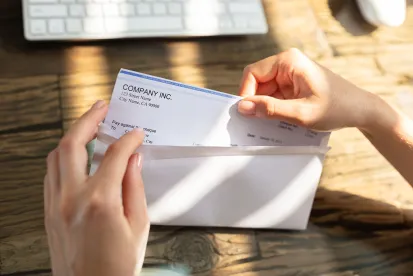On May 13, 2020, the U.S. Treasury and Small Business Administration (SBA) issued guidance in the form of an additional FAQ. The guidance, outlined in FAQ 46, provides clarity on how the SBA intends to review each borrower's good-faith certification (more fully discussed in FAQs 31, 37, 43 and 47).
The U.S. Treasury and SBA also extended the safe harbor repayment date for Paycheck Protection Program (PPP) loans to May 18, 2020.
In summary, FAQ 46 provides that:
-
PPP borrowers whose loans (when aggregated with loans obtained by their affiliates under the affiliation rules set forth in the interim final rule dated April 15, 2020) are less than the original principal amount of $2.0 million are deemed to meet the good-faith certification regarding the necessity of the PPP loan. We advise all borrowers to carefully reexamine their affiliation issues. Much has previously provided guidance on affiliation issues. Please reach out to your Much attorney if you have any questions or concerns.
-
PPP borrowers whose individual loans exceed the original principal amount of $2.0 million (and presumably, though not explicitly stated, those PPP borrowers whose loans, when aggregated with their affiliates' PPP loans, exceed $2.0 million) will remain subject to SBA automatic audit and review as explained in FAQ 39. Regardless of the guidance issued in FAQ 46, all borrowers must have a good-faith, adequate basis for making their certifications. However, if the SBA determines in the course of its audit or review that a borrower lacked an adequate basis for the required good-faith certification, the SBA will seek repayment of the outstanding PPP loan balance and will inform the lender that the borrower is not eligible for loan forgiveness. The SBA has stated that it will not pursue administrative enforcement or referrals to other agencies if a borrower repays the entire PPP loan (plus interest) upon the SBA's request.
-
Note that this limited safe harbor only relates to the good-faith certification portion of the PPP application. Other defects in a borrower's application (e.g., false statements or certification on eligibility, affiliation or employee count) are not subject to this safe harbor and enforcement actions may still proceed.
More specifically, FAQ 46 provides:
Question: How will SBA review borrowers' required good-faith certification concerning the necessity of their loan request?
Answer: When submitting a PPP application, all borrowers must certify in good faith that "[c]urrent economic uncertainty makes this loan request necessary to support the ongoing operations of the Applicant." SBA, in consultation with the Department of the Treasury, has determined that the following safe harbor will apply to SBA's review of PPP loans with respect to this issue: Any borrower that, together with its affiliates, received PPP loans with an original principal amount of less than $2 million will be deemed to have made the required certification concerning the necessity of the loan request in good faith.
SBA has determined that this safe harbor is appropriate because borrowers with loans below this threshold are generally less likely to have had access to adequate sources of liquidity in the current economic environment than borrowers that obtained larger loans. This safe harbor will also promote economic certainty as PPP borrowers with more limited resources endeavor to retain and rehire employees. In addition, given the large volume of PPP loans, this approach will enable SBA to conserve its finite audit resources and focus its reviews on larger loans, where the compliance effort may yield higher returns.
Importantly, borrowers with loans greater than $2 million that do not satisfy this safe harbor may still have an adequate basis for making the required good-faith certification, based on their individual circumstances in light of the language of the certification and SBA guidance. SBA has previously stated that all PPP loans in excess of $2 million, and other PPP loans as appropriate, will be subject to review by SBA for compliance with program requirements set forth in the PPP Interim Final Rules and in the Borrower Application Form. If SBA determines in the course of its review that a borrower lacked an adequate basis for the required certification concerning the necessity of the loan request, SBA will seek repayment of the outstanding PPP loan balance and will inform the lender that the borrower is not eligible for loan forgiveness. If the borrower repays the loan after receiving notification from SBA, SBA will not pursue administrative enforcement or referrals to other agencies based on its determination with respect to the certification concerning necessity of the loan request. SBA's determination concerning the certification regarding the necessity of the loan request will not affect SBA's loan guarantee.





 />i
/>i

